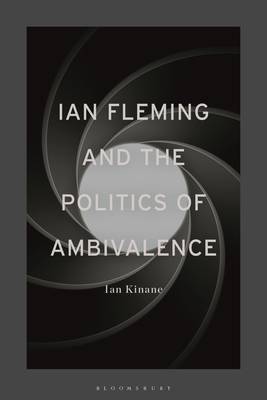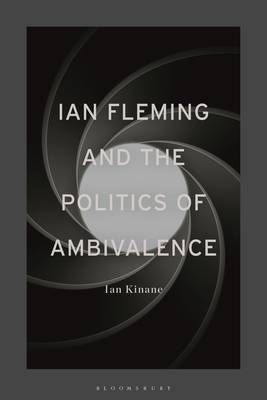
Bedankt voor het vertrouwen het afgelopen jaar! Om jou te bedanken bieden we GRATIS verzending (in België) aan op alles gedurende de hele maand januari.
- Afhalen na 1 uur in een winkel met voorraad
- In januari gratis thuislevering in België
- Ruim aanbod met 7 miljoen producten
Bedankt voor het vertrouwen het afgelopen jaar! Om jou te bedanken bieden we GRATIS verzending (in België) aan op alles gedurende de hele maand januari.
- Afhalen na 1 uur in een winkel met voorraad
- In januari gratis thuislevering in België
- Ruim aanbod met 7 miljoen producten
Zoeken
€ 220,45
+ 440 punten
Uitvoering
Omschrijving
Previously considered an avowed nationalist, this book explores how Ian Fleming's writings and his representational politics contain an implicit resistance to imperial rhetoric. Through an examination of Fleming's Jamaica-set novels Live and Let Die, Dr. No, and The Man with the Golden Gun, as well as the later film adaptations of these novels, Ian Kinane reveals Fleming's deep ambivalence to British decolonisation and to wider Anglo-Caribbean relations. Offered here is a crucial insight into the public imagination during the birth of modern British multiculturalism that encompasses broader links between Fleming's writings on race and the representation of early British-Jamaican cultural relations. By exploring the effects of racial representation in these popular works, Kinane connects the novels to more contemporary concerns regarding migration and the ways in which the misrepresentation of cultures, races, and peoples has led to fraught and contentious global geo-political relations as figured in the fictional icon, James Bond.
Specificaties
Betrokkenen
- Auteur(s):
- Uitgeverij:
Inhoud
- Aantal bladzijden:
- 224
- Taal:
- Engels
Eigenschappen
- Productcode (EAN):
- 9781350128965
- Verschijningsdatum:
- 6/05/2021
- Uitvoering:
- Hardcover
- Formaat:
- Genaaid
- Afmetingen:
- 156 mm x 234 mm
- Gewicht:
- 489 g

Alleen bij Standaard Boekhandel
+ 440 punten op je klantenkaart van Standaard Boekhandel
Beoordelingen
We publiceren alleen reviews die voldoen aan de voorwaarden voor reviews. Bekijk onze voorwaarden voor reviews.









